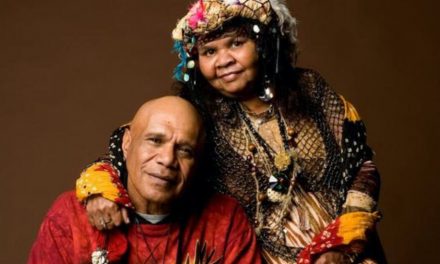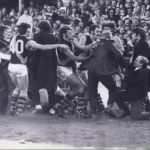Chilean singer and poet Victor Jara was murdered by Augusto Pinochet’s military junta in a Santiago stadium in 1973.
How hard it is to sing
when I must sing of horror.
Horror which I am living,
horror which I am dying.
To see myself among so much
and so many moments of infinity
in which silence and screams
are the end of my song.
This is poetry as life and death.
The words came from the heart and mind of Chilean singer and poet Víctor Jara.
They were his last. Not long after these words came into the world, Jara left it, murdered by the military junta in 1973. More than 40 bullets were fired into his body, which was then thrown into a pile of other bodies. Before that his hands were smashed. Like thousands of others he had been herded into a stadium in Santiago, tortured and killed.
The socialist leader Salvador Allende had won power in elections in 1970. He promised reform for workers and a more just society. It was not to occur. Augusto Pinochet, head of the military, staged a coup three years later. Just as the presidential palace was about to be stormed, Allende broadcast his final speech to the people.
“Workers of my country, I have faith in Chile and its destiny,” he said. “Other men will overcome this dark and bitter moment when treason seeks to prevail. Keep in mind that, much sooner than later, the great avenues will again be opened through which will pass free men to construct a better society. Long live Chile! Long live the people! Long live the workers!”
He then fatally shot himself.
The ghosts of Henry Kissinger and Richard Nixon stood behind him.
It was in America’s interests that Allende was gone, so much so that the US had been pouring millions of dollars into pro-American forces in Chile for years. Never mind that Pinochet unleashed a reign of terror that would last for years. Opponents became the missing. There were thousands of them.
PLEASE HELP US CONTINUE TO THRIVE BY BECOMING AN OFFICIAL FOOTYOLOGY PATRON. JUST CLICK THIS LINK.
Kissinger, in particular, saw in Chile, as he did with most countries, not an independent entity, but a part that had to be smashed into shape to fit into the jigsaw atlas of America’s global interests. Of Chile, he said: ‘‘I don’t see why we should have to stand by and let a country go Communist due to the irresponsibility of its own people.’’
Kissinger’s admirers would say that this was a stunning example of grasping realpolitik by the throat, and being its master. Millions of others, the powerless, the subjugated, the innocent, would say no. Ask the people of Cambodia and Laos bombed during the Vietnam War. Or ask the people of Chile. Ask Victor Jara.
Kissinger died last week, 50 years after Jara was murdered. Jara’s wife Joan died a couple of weeks ago. Kissinger lasted to 100, Jara less than half that.
Victor Jara came to mind when news of Kissinger’s death broke, followed not long after by remembering his labelling by historian and critic Christopher Hitchens as a war criminal.
In the span of geo-political time and place, Kissinger moved pieces around into what he saw as the best position for America and therefore the world. There were so many pawns in his game. Not for nothing did songwriter and satirist Tom Lehrer comment after Kissinger won the Nobel peace prize: ‘‘Political satire became obsolete when Henry Kissinger was awarded the Nobel peace prize.’’
In that realm, the fate of one poet and folksinger in a country in South America seems insignificant. But the song lives on. The words live on. They have no frontiers. Three years after his murder, Australian singer Jeannie Lewis included his works on her stunning album “Tears of Steel and the Clowning Calaveras”.
Today, artists such as Bruce Springsteen and Tom Morello give thanks and honour Jara’s memory. Springsteen’s performance of Jara’s “Manifesto” is heartbreaking and inspiring. Morello and his band Rage Against the Machine bring out the anger of “Cancion el Minero”. Morello recently posted a photo of himself with Joan Jara.
Jara’s poem at the start of this piece now welcomes visitors at the entrance to the Museum of Memory and Human Rights in Santiago, which commemorates and condemns the nightmare that was Pinochet’s time in power, aided by the US, and by Henry Kissinger.
It is tribute to those who suffered and declaration that art and the spirit that was its breath carries on.











